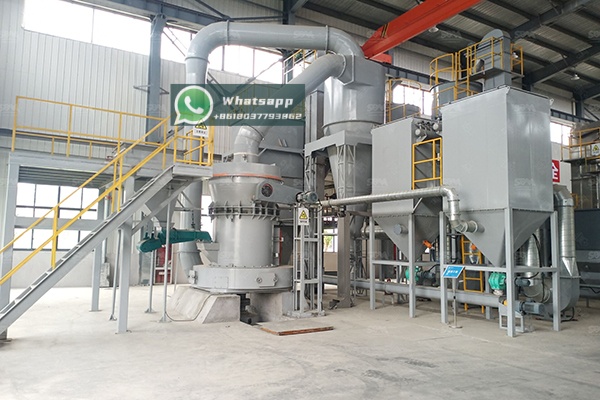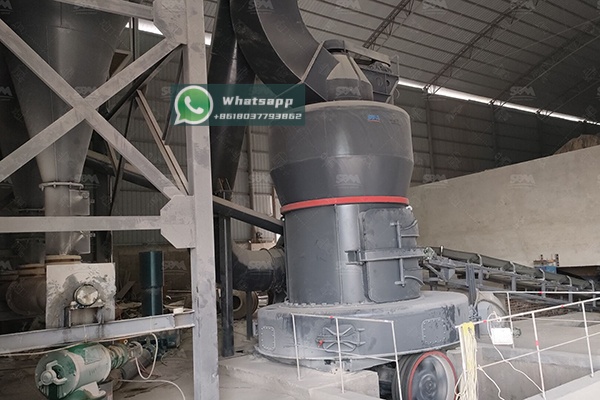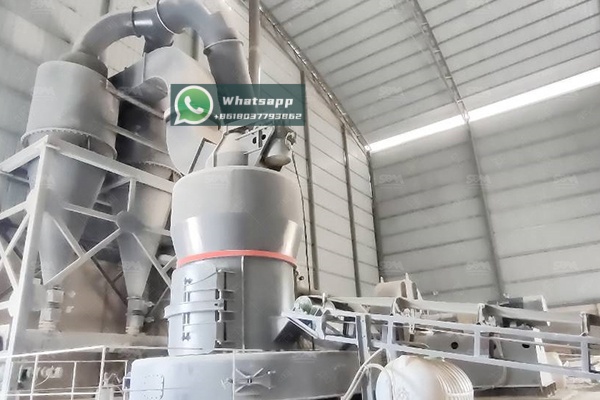The aquaculture industry has experienced tremendous growth over the past decades, becoming an essential component of global food security. As production intensifies, maintaining optimal water quality becomes increasingly challenging. Among the various solutions available, natural zeolites have emerged as a powerful, eco-friendly tool for water purification and ammonia control in aquaculture systems.
Zeolites are microporous, aluminosilicate minerals renowned for their unique crystalline structure and exceptional ion-exchange capabilities. In aquaculture applications, zeolites effectively remove toxic ammonia, heavy metals, and other harmful substances from water, creating a healthier environment for aquatic species. However, to maximize their effectiveness, zeolites must be processed to specific particle sizes that optimize surface area and reactivity while ensuring practical handling characteristics.

Zeolites possess a three-dimensional crystalline structure with interconnected channels and cavities that can accommodate various cations and water molecules. This structure gives zeolites their remarkable adsorption and ion-exchange properties. The most commonly used zeolite in aquaculture is clinoptilolite, which exhibits high selectivity for ammonium ions (NH₄⁺) – a critical advantage in systems where ammonia toxicity is a primary concern.
The effectiveness of zeolite in aquaculture applications depends significantly on particle size distribution. Finer particles offer greater surface area for ion exchange but may create handling difficulties or cloud water if too fine. Coarser particles are easier to handle but provide reduced surface area. Therefore, achieving the optimal particle size range (typically between 100-500 microns) requires precise grinding equipment capable of producing consistent, controlled particle distributions.
Shanghai Zenith Machinery Co., Ltd., as an excellent manufacturer of ore grinding equipment in China, has made significant achievements in the field of ultra-fine powder grinding. With specialized research, development, and production capabilities in industrial powder grinding equipment, Zenith offers comprehensive solutions specifically tailored for processing mineral materials like zeolite for aquaculture applications.
For aquaculture zeolite processing operations requiring high capacity and consistent particle size distribution, the MTW Trapezium Grinding Mill represents an ideal solution. This grinding mill incorporates multiple patents and features a compact structure, long service life, and eco-friendly design – all critical factors for sustainable aquaculture operations.
The MTW series is particularly suitable for zeolite processing due to its ability to handle materials with maximum input sizes up to 50mm and produce final products as fine as 0.038mm (approximately 400 mesh). The curved air duct design and internal powder separator ensure efficient classification and consistent output quality.
| Model | Max. Feed Size (mm) | Final Size (mm) | Capacity (t/h) | Main Motor (kW) | Recommended Zeolite Application |
|---|---|---|---|---|---|
| MTW110 | <30 | 1.6-0.045 | 3-9 | 55 | Small to medium aquaculture farms |
| MTW138Z | <35 | 1.6-0.045 | 6-17 | 90 | Medium commercial operations |
| MTW175G | <40 | 1.6-0.045 | 9.5-25 | 160 | Large aquaculture enterprises |
| MTW215G | <50 | 1.6-0.045 | 15-45 | 280 | Industrial-scale production |
For operations requiring ultra-fine zeolite powders for specialized aquaculture applications, the XZM Ultrafine Grinding Mill offers exceptional performance. This mill is specifically designed for superfine powder production and can achieve output fineness ranging from 325 to 2500 mesh, making it perfect for producing high-surface-area zeolite powders that maximize ammonia adsorption capacity.
The XZM series features advanced classification technology that ensures precise particle size control – a critical factor when producing zeolite for different aquaculture applications, from pond treatment to recirculating aquaculture systems (RAS).
| Model | Working Diameter (mm) | Max Feed Size (mm) | Final Size (mesh) | Output (kg/h) | Main Motor Power (kW) |
|---|---|---|---|---|---|
| XZM221 | Φ800 | ≤20 | 325-2500 | 500-4500 | 75 |
| XZM268 | Φ1680 | ≤20 | 325-2500 | 5000-25000 | 315 |

In traditional pond aquaculture, zeolite is typically applied directly to the water column to control ammonia levels. For this application, a moderately coarse grind (approximately 0.5-1.0 mm) is often preferred as it allows for easier application and settling characteristics that prevent water cloudiness while still providing adequate surface area for ammonia adsorption.
The MTW Trapezium Grinding Mill excels in this application, offering the flexibility to produce the ideal particle size range while maintaining high throughput capacity. The energy-efficient design of the MTW series also helps reduce operational costs, an important consideration for large-scale pond operations.
In sophisticated RAS facilities, zeolite is often used in fixed-bed filters or fluidized bed reactors. These applications typically require finer particle sizes (100-300 microns) to maximize surface area and adsorption kinetics. The XZM Ultrafine Grinding Mill is particularly well-suited for these requirements, producing consistently fine powders with narrow particle size distributions.
The precise classification capabilities of the XZM mill ensure that the produced zeolite powder maintains optimal flow characteristics through filtration systems while providing maximum ammonia removal efficiency.
Beyond water treatment, zeolite is increasingly used as a feed additive in aquaculture to improve nutrient utilization and reduce ammonia production in the digestive tracts of cultured species. For this application, ultra-fine grinding (typically below 50 microns) is necessary to ensure uniform mixing with feed and maximum bioavailability.
The XZM Ultrafine Grinding Mill can achieve the necessary fineness while maintaining the structural integrity of the zeolite crystals, preserving their ion-exchange capabilities even after extensive grinding.
Zeolites naturally contain water within their crystalline structure, and controlling moisture content during grinding is essential for optimal processing. Both the MTW and XZM series from Zenith incorporate advanced drying capabilities that allow for simultaneous grinding and moisture adjustment, ensuring consistent product quality regardless of raw material conditions.
Dust generation during zeolite grinding poses both operational and environmental challenges. Zenith’s grinding solutions incorporate comprehensive dust collection systems that minimize particulate emissions while recovering valuable product. The eco-friendly design of these mills aligns with the sustainability goals of modern aquaculture operations.
Grinding operations typically account for a significant portion of mineral processing energy costs. Both the MTW Trapezium Grinding Mill and XZM Ultrafine Grinding Mill feature energy-saving designs that optimize power consumption while maintaining high throughput. The MTW series, in particular, incorporates a bevel gear overall transmission that reduces energy loss compared to traditional grinding mills.

A large shrimp farming operation in Southeast Asia recently implemented Zenith’s MTW175G Trapezium Grinding Mill for their on-site zeolite processing needs. Previously relying on commercially available zeolite products of inconsistent quality, the farm transitioned to processing raw zeolite from a local deposit.
The results demonstrated significant improvements in both operational efficiency and water quality management:
The use of zeolite in aquaculture continues to evolve, with emerging applications including:
Research is increasingly focusing on chemically modified zeolites with enhanced adsorption capacities for specific contaminants. The precise grinding capabilities of Zenith’s equipment will be essential for processing these specialized materials.
As nanotechnology advances, the production of nano-zeolites for highly efficient water treatment represents a promising frontier. The XZM Ultrafine Grinding Mill’s ability to produce sub-micron particles positions it as a key technology for this emerging application.
Future aquaculture operations will likely incorporate zeolite as part of integrated multi-stage water treatment systems. The consistent quality and particle control offered by advanced grinding equipment will be critical for these sophisticated applications.
The effective use of zeolite in aquaculture depends fundamentally on proper processing to optimize its natural properties. Shanghai Zenith Machinery Co., Ltd. offers comprehensive grinding solutions specifically engineered for mineral processing applications, including zeolite for aquaculture. The MTW Trapezium Grinding Mill and XZM Ultrafine Grinding Mill represent two excellent options tailored to different production requirements and application needs.
By partnering with Zenith, aquaculture operations can achieve greater control over their water treatment strategies, reduce operational costs, and improve overall system performance. The company’s expertise in ultra-fine powder grinding, combined with their reliable, efficient equipment designs, provides aquaculture professionals with the tools needed to harness the full potential of natural zeolites in their operations.
As the aquaculture industry continues to grow and evolve, advanced grinding solutions from experienced manufacturers like Shanghai Zenith will play an increasingly important role in supporting sustainable production practices and maintaining optimal water quality for cultivated aquatic species.